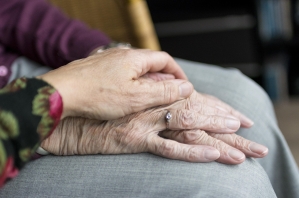
Euthanasia and assisted suicide cases in New Zealand have risen by more than a third in the past year, reaching 472 deaths between April 2024 and March 2025 — a 37.21% increase over the previous year, according to figures cited by Right to Life UK from the New Zealand Ministry of Health. The pro-life group called the surge “a cause for alarm” and warned that the country is following the same steep upward trend seen in other nations that have legalized the practice.
“New Zealand appears to be following the same trend as other countries that have introduced euthanasia and assisted suicide legislation in recent years — a steep year-on-year increase in deaths through assisted suicide and euthanasia.
“The experience of New Zealand should serve as a portent of what we can likely expect in England and Wales should Kim Leadbeater’s assisted suicide Bill pass the Lords,” said Catherine Robinson, spokesperson for Right To Life UK.
Altogether, the data shows a total of 472 cases of euthanasia and assisted suicide in New Zealand from April 1, 2024, to March 30, 2025. This is a 37.21% increase from the same period the previous year when there were 344 cases of euthanasia and assisted suicide in the country. It equals 1.25% of all deaths in New Zealand.
According to Right to Life UK, reasons cited by the now-deceased applicants for seeking euthanasia or assisted suicide included having disabilities (12%), even though one in five were not receiving palliative care. Only 19 applicants underwent a psychiatric assessment to determine their competence to make an informed decision.
Meanwhile, 1 in 10 applicants cited a neurological condition. Right to Life UK described this as a “relatively small proportion” compared with the argument often made by pro-euthanasia supporters, noting “the need for people with neurological conditions to access assisted suicide or euthanasia regularly being referred to by campaigners as a key reason for introducing assisted suicide and euthanasia.”
The report also revealed a decline in the number of doctors willing to be involved in assisted suicide and euthanasia. The number of practitioners on the Support and Consultation for End of Life Choice (SCENZ) Group list, which connects patients with doctors willing to assess or carry out assisted deaths, fell from 148 in March 2023 to 126 in March 2025.
An ethnic disparity was also evident. New Zealand European/Pākehā applicants made up 79.92% of applications, despite comprising 67.8% of the population. Māori accounted for 4.97% of applications but 17.8% of the population, Asians 3.56% of applications but 17.30% of the population, and Pacific peoples 0.56% of applications but 8.90% of the population.
New Zealand introduced the End of Life Choice Act 2019, which legalized euthanasia and assisted suicide effective Nov. 7, 2021. The law allows eligible individuals—those aged 18 or older, who are citizens or permanent residents, have a terminal illness expected to end their life within six months, are in irreversible decline, and experiencing unbearable suffering—to pursue assisted dying.





